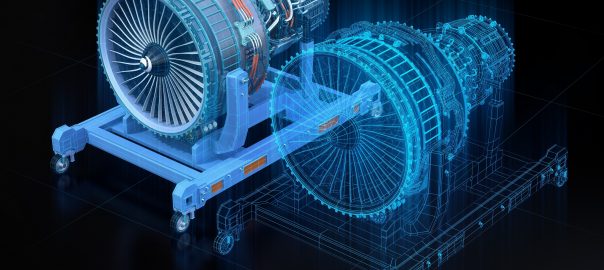Digital twin technology means a lot for flood preparedness, drainage and wastewater management and a host of other things in the water sector and beyond. It also has a lot to do with running business differently as the knowledge obtained from digital twins, including how to aggregate and visualise data, has large potential to shape the future of decision-making and data.
For those unaware, digital twin is a bit of buzzword that is catching on in academic, industry and policy worlds that refers to a live real time digital counterpart of physical systems we encounter in the real world. It’s closely related to what people in academia and industry also call ‘cyber-physical’ (more about this in our podcast on ‘The Fourth Industrial Revolution’).
Here is an example of a Games Engineering student’s final project in creating a digital twin of a building, in this case the Urban Sciences Building at Newcastle Helix. When the lights turn on and off in the building itself they do the same in the simulation.
In some ways, digital twin has already done at the scale of products like jet engines and to some degree flood modelling. But what would be really cool is a digital twin of an entire city. Could we get there with the means we have now? Quite possibly, but there’s plenty of room for innovation.
At the 2019 NWG Innovation Festival this summer, I had the pleasure of working with bright individuals across multiple sectors to make this one-minute video on the ‘Digital Twin’ sprint organised by NWG and Newcastle University.
There were a range of ideas on the table about how digital twins can improve what we do in the wastewater sector especially in meeting new requirements . This is mainly for you folks working in the private sector, but I imagine many of you will appreciate that there is a great deal of value in bringing digital twins to life, with wide implications for managing things from a systems point of view. You may not solve everything with a digital twin, but it’s not a bad place to start either.
Video presented by our Head of School Prof John Fitzgerald @NclFitz on the outputs from #DigitalTwin Sprint NWG #InnovationFestival19 @nwg_tws Game changing ideas for #data, drainage and wastewater in the span of a week! pic.twitter.com/scl4xMGy22
— Newcastle Computing (@computingncl) July 18, 2019
